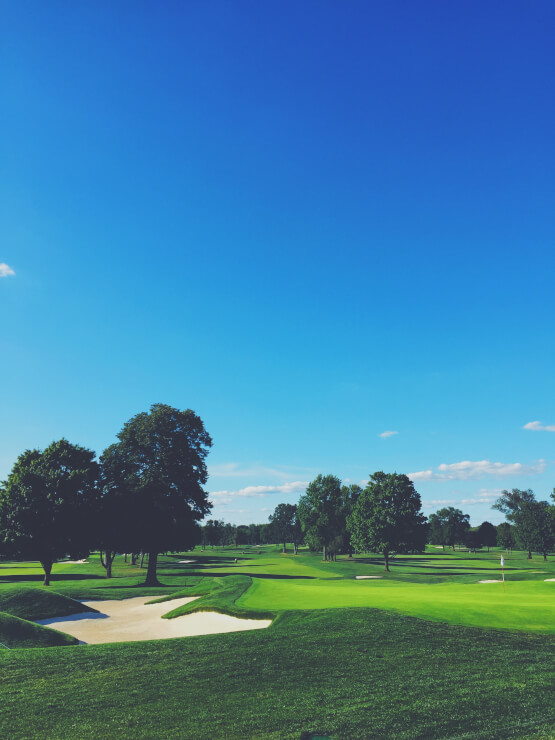
As a skill Green Reading has to be learnt.
It is not something that people are born to do.
To become a good green reader you must first open your eyes and be aware of everything.
Reading greens is not just about determining the slope of the green and the amount of borrow the ball is going to take as it makes it´s journey to the hole.
It is far more complicated than that and requires you to open your eyes to as much information as you can glean as your stalk the hole.
Reading the green begins as you approach, it is here you can start to develop a mental map of the green.
But you need to look at more than just the slopes, you must consider the following as well:
- The direction in which the grass grows (The grain)
- The length of the grass
- The humidity of the grass
- The type of grass
- The wind
- How the hole is cut
Each of the above considerations will affect the way that your ball will travel to the hole.
We have all heard about how the grain of the green can affect the putt, but do you understand it? Do you see it?
Open your eyes and see that the green will be a different shade of green depending on how the grain is growing.
Looking into the grain (grass growing towards you) the grass will appear lush, meaning a slower putt that takes more of the borrow.
Down grain, putting with the direction of grass growth appears to have a silvery tint to it,this results in slick, fast putts that take less of the borrow.
The length of the grass, regardless of grain will affect the speed and the amount of break the ball will take, it can also cause small indentations that will affect the ball as well.
The humidity of the grass will affect the speed, as greens dry out during the day they will get faster, even though the grass is growing longer.
If you are putting in windy conditions the wind will also add another dimension to your calculations.
Even the way the hole is cut will change the way the ball roll as it approaches the target.
Take a closer look at the hole and you may notice that there is a raised ring around the cup. Often called the crown, it creates a raised approach which can throw a ball offline causing missed putts.
Observation is key to reading greens and the more information you can muster the better, so open your eyes and see everything there is to see on the green.

Recent Comments